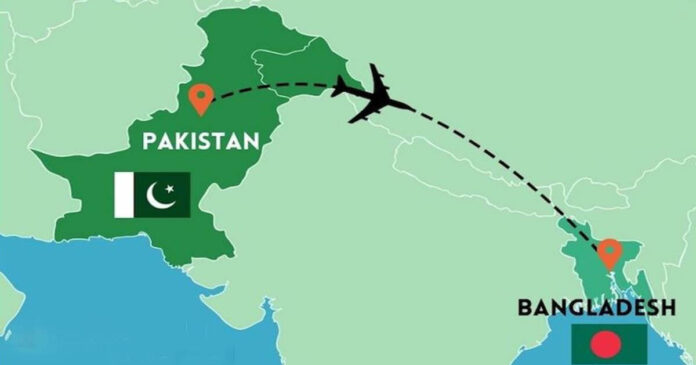The partition was incredibly violent, resulting in hundreds of thousands of deaths as people fled their homes to try to escape the violence. In Bangladesh and Pakistan, there are still significant tensions between the Muslim and Hindu populations.
Since independence, relations between Bangladesh and Pakistan have been tense. There have been several wars between the two countries, and the border has been a source of significant tension. The two countries also have different political systems, with Bangladesh being a secular democracy and Pakistan being an Islamic republic.
Despite these differences, however, there are also strong ties between Bangladesh and Pakistan. The two countries share a cultural affinity, as they are both South Asian countries.
Recently, relations between Bangladesh and Pakistan have improved somewhat. In 2013, the two countries signed a landmark agreement to improve bilateral relations. This agreement included commitments to increase trade and cooperation in areas such as security and energy. However, significant challenges still remain in the relationship between Bangladesh and Pakistan.
The relationship between Bangladesh and Pakistan is complex and strained due to a number of historical and political factors. After the Partition of British India into India and Pakistan in 1947, Bangladesh (then known as East Pakistan) was part of Pakistan as its eastern province. The two parts of Pakistan were separated by around 1000 miles (1600 km) of Indian territory.
East Pakistan always felt neglected and marginalized by the Pakistani government based in West Pakistan, which resulted in growing Bengali nationalism and eventually the Bangladesh Liberation War in 1971. Since then, relations between the two countries have been poor, with a number of diplomatic disagreements and military stand-offs. However, there have also been periods of cooperation, particularly in recent years as both countries face common challenges such as terrorism and extremism.
The Partition of British India into India and Pakistan in 1947 was a result of the final round of negotiations between the British and Indian politicians in 1946. The British were keen to exit India as quickly as possible and believed that the only way to do so without risking violence was to divide the subcontinent along communal lines into Hindu and Muslim territories.
The partition led to mass violence and displacement, with over a million people dying in the accompanying riots. In the newly created Pakistan, there was a large influx of Muslims from India, while Hindus and Sikhs migrated in the other direction, resulting in religious tensions.
East Pakistan (now Bangladesh) was initially part of West Pakistan but always felt neglected by the Pakistani government based in West Pakistan. The two parts of Pakistan were separated by around 1000 miles (1600 km) of Indian territory, and East Pakistan felt that it was not given a fair share of resources, particularly when it came to defense and infrastructure. This led to growing Bengali nationalism and resentment towards the Pakistani government. In 1971, these tensions boiled over into the Bangladesh Liberation War, which resulted in the creation of an independent Bangladesh.
Since the separation of Bangladesh from Pakistan, relations between the two countries have been poor, with a number of diplomatic disagreements and military stand-offs. In 1974, for example, there was a brief war between the two countries after Bangladesh accused Pakistan of supporting an insurgency in its eastern provinces.
Tensions flared again in 1999 when Bangladesh arrested a number of Pakistani soldiers who had been stranded in its territory after the Kargil War. In recent years, however, relations between Bangladesh and Pakistan have warmed somewhat, as both countries face common challenges such as terrorism and extremism. In 2015, for example, the two countries signed a landmark agreement on the sharing of river waters.
Despite the challenges in their relationship, Bangladesh and Pakistan have maintained diplomatic ties and cooperated on a number of issues. There is also a significant Bangladeshi community in Pakistan, particularly in Karachi, and vice versa.
In recent years, there have been a number of high-profile visits between the two countries, including by the Pakistani prime minister to Bangladesh in 2015. While there are still many thorny issues to be resolved, the relationship between Bangladesh and Pakistan is slowly improving.
Follow Pakistan Draft on Facebook, and Twitter for a more daily dose of news revolving around Pakistan.

